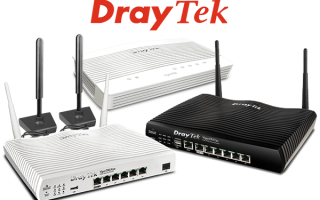Did you know that your router is like the traffic warden of your networking infrastructure? It directs, redirects, and allows traffic to pass through, or get straight from A to B. It is an essential element of your entire networking setup. Without one, you’ll be vulnerable to security breaches, having a slow connection, and being […]
APC – Power Distribution Made Simple
A guide to PDUs and ATSs to improve your understanding of what your unique business needs
Shining a Pink Light: Breast Cancer Awareness Month
Every October, a wave of pink takes over the world. From pink ribbons adorning lapels to illuminated buildings bathed in pink light, Breast Cancer Awareness Month is a global movement to raise awareness about one of the most common and, unfortunately, deadly cancers affecting women today. In this blog, we will delve into the importance […]
Manage Power Failures Before They Strike with APC UPS
Weather events have been increasing in number & impact over recent years. Don't let this cause your business downtime. Keep the power on with APC
The Top 10 Best Draytek Routers (2024)
HPE Networking: Price Match Promo!
HPE is a global, edge-to-cloud Platform-as-a-Service company built to transform your business. Accelerating your business outcomes with comprehensive solutions. Third-party analysts have repeatedly recognized HPE Networking as a leader in Wi-Fi 6, switching, SD-Branch, and a visionary in Data Centre networking. The world’s largest companies rely on HPE to provide a secure, AI-powered edge servic...
Trend Networks Depend On Us Promotion
In the fast-paced world of networking, staying ahead of the curve is essential. To help you achieve peak performance, Trend Network has launched an exciting new promotion called ‘Depend On Us’. This promotion offers an incredible opportunity for professionals and enthusiasts alike to upgrade their networking arsenal. You’ll receive complimentary, high-quality products when you pu...
The Best Jabra Headsets for Business: A Guide
Discover the best Jabra headsets for business in this comprehensive guide. Explore top models like the Jabra Engage 50 and Evolve2 series for superior sound, comfort, and productivity. Available at Comms Express
Choosing the Right Synology NAS for Your Business and Home Needs
how to choose the right Synology NAS, and some top recommendations for various business sizes.
Review: The Best Wall Mounted Data Cabinets / Data Racks
Schneider Electric to invest £42 million in new manufacturing site in North Yorkshire
More than 200 jobs will be created to meet the increased demand for electrical equipment to drive the UK’s move to cleaner energy including renewable energy sources
Grandstream: Your Trusted Partner for Unified Communications
High-quality solutions that empower businesses to communicate more efficiently and effectively.
Vertiv: Comms Express Best Sellers + Double Data Points
Check out our blog on Vertiv's best sellers and keep on your IT infrastructure updated with the latest performance increasing products.
Zyxel for Startup/Small Businesses
Zyxel offers a variety of networking solutions for startups and small businesses, including wireless access points, switches, firewalls, and VPNs. Their products are designed to be affordable, reliable, and easy to manage.
Eaton: Unleash the Power of Eaton UPS Solutions + Double Data Points
Protect your devices from power outages! Discover Eaton UPSs to keep your business running smoothly.


